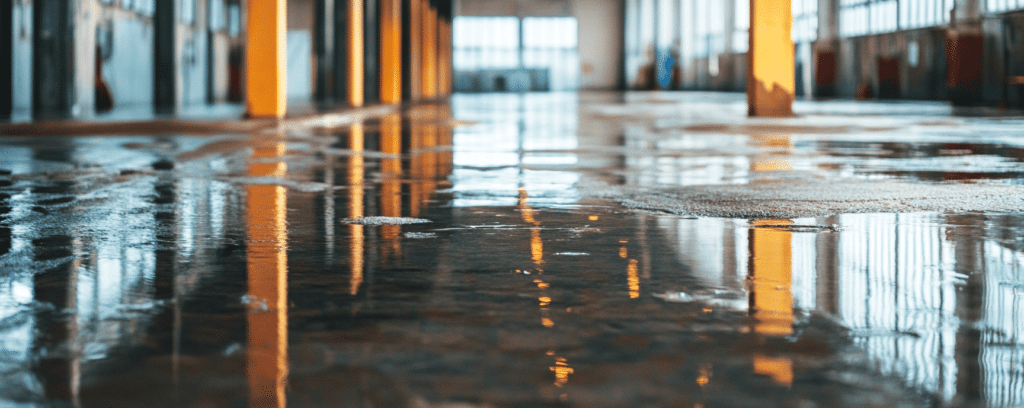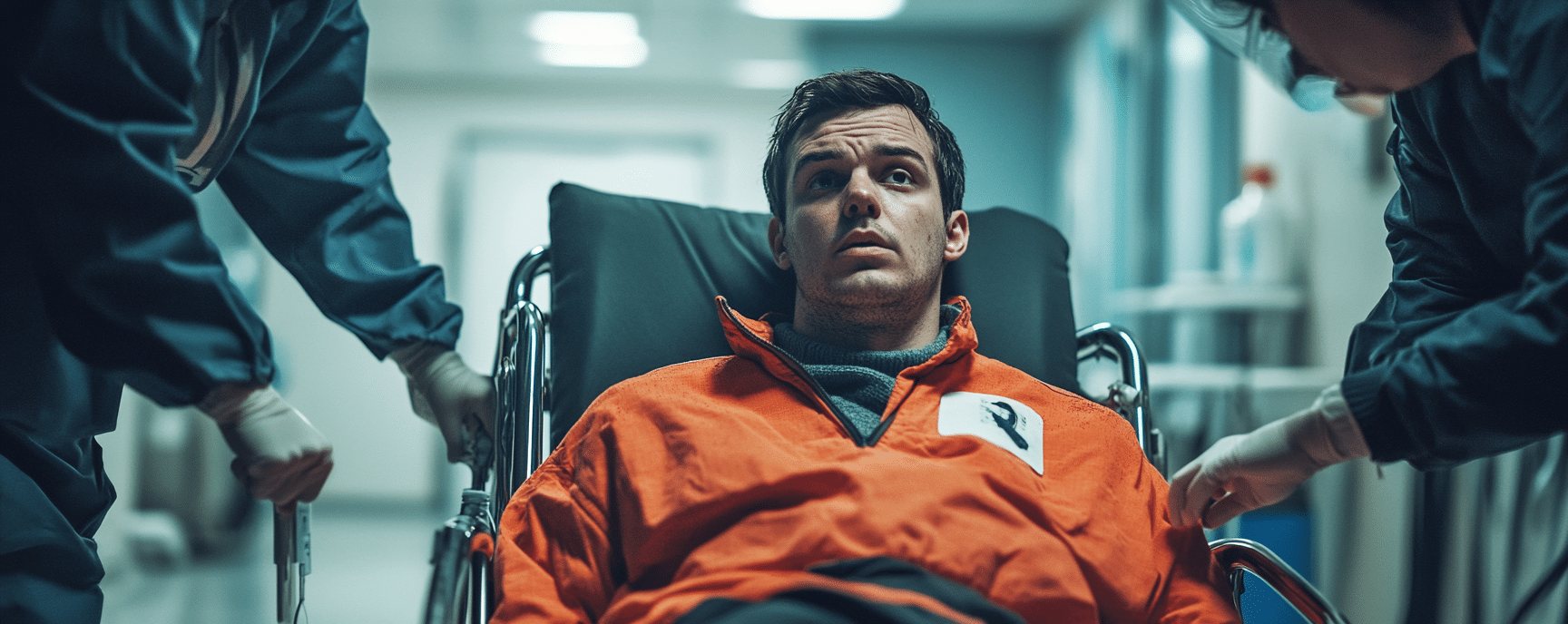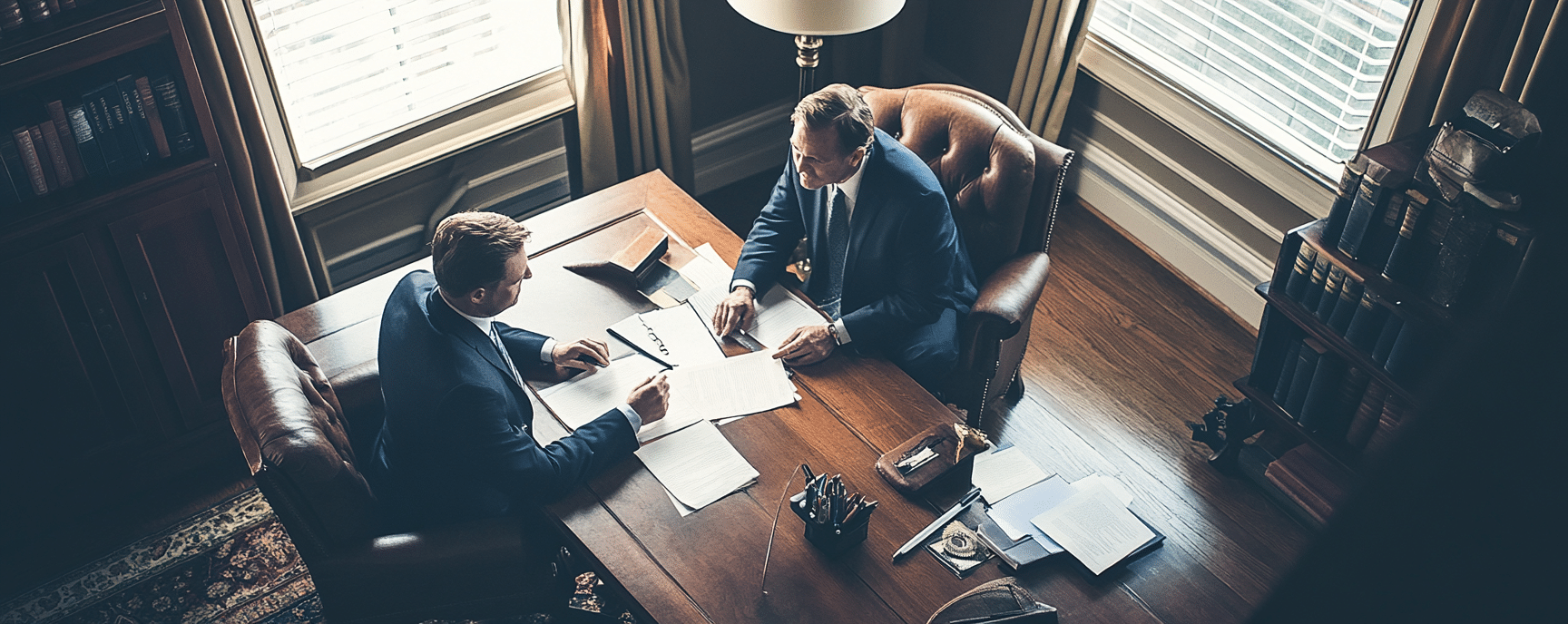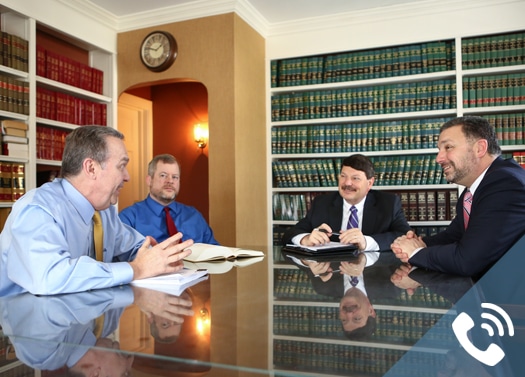Can You Sue for Slipping on a Wet Floor? Exploring Your Legal Options
Last updated Tuesday, December 10th, 2024

Yes, you can sue for slipping on a wet floor. If you’ve been injured due to a wet floor, you may have a valid personal injury claim. This article will explore your legal options, helping you understand when a property owner might be liable and the steps to take after such an incident. So, can you sue for slipping on a wet floor? Let’s delve into the details.
Key Takeaways
- Slip and fall lawsuits hinge on proving negligence, necessitating that the property owner failed to uphold reasonable safety standards, thereby causing injuries.
- Immediate actions after a slip and fall, such as reporting the incident, seeking medical attention, and collecting evidence, are vital for strengthening a personal injury claim.
- Understanding the differences between workers’ compensation claims and personal injury lawsuits is essential for victims, as it influences compensation eligibility and the legal process.

Get Your FREE Case Review,
In Person or Virtually Online
Legal Grounds for Suing After a Slip on a Wet Floor
Slipping and falling on a wet floor can be overwhelming, but knowing your legal grounds for a lawsuit is crucial. You may sue property owners, management, or responsible third parties for slipping on a wet floor. Liability can be complex, with different entities possibly sharing responsibility.
For instance, if your slip and fall occurred in a workplace setting, inadequate workers’ compensation insurance or intentional harm may allow you to file a personal injury lawsuit instead of relying solely on workers’ compensation. Employers can be held liable if gross negligence is proven, meaning they knew about the wet floor or other dangers and did not act to remedy the workplace injury.
A personal injury lawyer can evaluate your case’s unique circumstances and identify liable parties, providing invaluable guidance, especially in complex situations.
Establishing Negligence
Proving negligence is crucial in any slip-and-fall lawsuit. You must show that the property owner failed to meet reasonable safety standards, causing your injuries. For instance, if a property owner fails to clean up a spill or maintain safe flooring, and this leads to your slip and fall, they could be deemed negligent.
Inadequate maintenance examples include not cleaning floors, neglecting flooring, or leaving dangerous objects in walkways. Wet floors can result from cleaning activities, outdoor water, leaking ceilings, or spills.
Poor lighting or obstacles like tools can hide hazards, raising the risk of slip and fall accidents. Whether a property owner took appropriate actions to mitigate these hazards depends on the specific facts of each case.
Proving Liability
To prove liability, you must show the property owner knew or should have known about the wet floor and failed to address it. Property managers must respond to spills promptly by placing a wet floor sign and cleaning up. However, defendants might argue they performed regular maintenance and safety checks.
A common defense is the property owner had no prior knowledge of the hazard, arguing they were unaware due to inadequate notice. The plaintiff must provide evidence that the property owner should have known about the hazard, which can be challenging but necessary for a successful claim.
The Role of Warning Signs
Warning signs are crucial in slip and fall cases. Their absence can significantly impact your ability to claim compensation, as they alert individuals to potential hazards and influence liability considerations.
When warning signs are present, property owners may argue they took reasonable measures to prevent accidents, reducing their liability. Thus, the presence or absence of warning signs can be pivotal in a slip-and-fall lawsuit’s outcome.

Get Your FREE Case Review,
In Person or Virtually Online
Steps to Take Immediately After a Slip and Fall Accident
The moments after a slip and fall are critical. Knowing the steps to take can significantly affect your personal injury claim. First, report the incident immediately to the property owner or manager to document it, establishing a record for future claims.
Then, seek immediate medical attention to address injuries and create a medical record to support your claim. Collect evidence such as photographs, witness statements, and incident reports quickly. These steps ensure your well-being and strengthen your case.
Reporting the Incident
Promptly notifying the property owner or manager about the incident is crucial for establishing responsibility. Include details about where and how the accident occurred to ensure an official record.
This initial report can be vital evidence in a slip and fall claim, helping to validate your account of the event.
Seeking Medical Attention
Timely medical evaluation is vital for identifying injuries that may not be immediately apparent. Even if you feel fine, some injuries might not manifest until later. Seeking prompt medical attention documents these injuries.
Medical records serve as critical evidence to support your compensation claim.
Collecting Evidence
Gathering evidence, such as photos and witness information, right after the accident strengthens your case. Take photos of the wet floor area, any warning signs (or lack thereof), and your injuries. Collect contact information from witnesses who can corroborate your account.
This evidence can be invaluable in proving negligence and liability.
Workers’ Compensation vs. Personal Injury Claims
Understanding the difference between workers’ compensation claims and personal injury lawsuits is critical for handling a slip and fall accident. Workers can file either a workers’ compensation claim or a personal injury lawsuit after a work-related slip and fall. Most state systems don’t require proof of employer negligence for benefits, typically covering economic damages like medical bills and lost wages.
However, accepting workers’ compensation benefits usually means giving up the right to sue your employer for work-related injuries. Workers can sometimes seek additional compensation by proving negligence, such as third-party involvement or employer misconduct. Knowing which type of workers comp claims to pursue can significantly impact your compensation.
Filing a Workers’ Compensation Claim
Immediately report the incident to your employer to preserve your right to workers’ compensation benefits. Failure to report the injury promptly can lead to claims that the injuries were sustained elsewhere, jeopardizing your claim. Filing a workers’ compensation claim typically involves providing your employer with the necessary forms to file a work injury report. File the claim as soon as possible to start the compensation process and avoid delays.
Filling out the DWC-1 claim form is necessary to open your workers’ compensation case. An attorney specializing in workers’ compensation can help you navigate the complex claims process effectively.
Workers’ compensation benefits can cover medical expenses, lost wages, and rehabilitation costs from your slip and fall accident.
Pursuing a Personal Injury Lawsuit
A personal injury lawsuit can be filed if a slip and fall resulted from property owner negligence or occurred in certain work-related contexts. Compensation can cover pain and suffering, emotional distress, and other non-economic damages not covered by workers’ compensation.
If pre-lawsuit negotiations fail, an attorney can file a lawsuit on your behalf, which may include claims against your employer if they lacked necessary workers’ compensation insurance. This type of lawsuit can provide more comprehensive compensation, especially for non-economic damages.
An experienced fall attorney can significantly impact the outcome of your case by navigating the complexities of civil court.
Potential Compensation for Slip and Fall Injuries
After a slip and fall incident, victims may claim both economic and non-economic damages. Economic damages cover medical bills, lost wages, and other quantifiable financial losses. Non-economic damages include pain and suffering, mental distress, and loss of enjoyment of life. The severity of injuries, evidence of negligence, and case strength can influence potential compensation.
Immediate action after a slip and fall, such as documenting the scene and seeking medical attention, can significantly enhance your chances of receiving fair compensation. Additionally, the percentage of fault you bear in the incident can affect your eligibility to recover damages.
Economic Damages
Economic damages in a slip and fall case may include:
- Medical bills
- Lost wages
- Lost earning potential
- Transportation costs
- Costs for medical devices
- Out-of-pocket expenses
Immediate medical attention influences the amount of compensation; lack of treatment can imply injuries aren’t serious.
Workers’ compensation for slip and fall injuries typically covers medical expenses and lost wages. Attorneys start negotiations by gathering relevant documents to support the claim, including medical records and lost income statements.
Non-Economic Damages
Non-economic damages refer to compensation for pain and suffering, mental distress, embarrassment, and loss of enjoyment of life. Filing a workers’ compensation claim waives the right to seek non-economic damages, which are not covered by workers’ compensation insurance.
These damages are often subjective and can vary widely. An experienced personal injury attorney can help quantify them and advocate for the maximum compensation you deserve.

Get Your FREE Case Review,
In Person or Virtually Online
Common Defenses Against Slip and Fall Claims
Property owners often use specific defenses to avoid liability in slip and fall claims. One common defense is that the defendant did not owe a duty of care to the injured party, which can absolve them of liability. Liability for a slip and fall incident may be shared among multiple parties, complicating the process of identifying who can be sued.
Understanding these defenses is crucial for evaluating a slip-and-fall claim’s strength. Knowing what to expect can help you and your attorney prepare to counter these arguments.
Contributory Negligence
Defendants can assert that the plaintiff’s actions contributed to the accident, impacting the claim’s outcome. In some jurisdictions, a plaintiff can be completely barred from recovering damages if found even minimally at fault. In jurisdictions with pure comparative negligence, individuals can still receive compensation even if they are predominantly at fault.
Contributory negligence refers to situations where a plaintiff’s actions contributed to their accident, affecting the possibility of recovering compensation. This defense can significantly reduce or even eliminate recoverable damages.
Reasonable Measures Taken
Property owners may argue they took adequate precautions to prevent accidents, such as placing wet floor signs or conducting regular maintenance checks. Defendants might also claim they were unaware of a hazard due to a lack of time to address it.
The onus then shifts to the injured party to prove the property owner failed to take reasonable measures. This defense requires thorough evidence to counter claims of adequate precautions.
Lack of Notice
The property owner’s defense may include an argument that they had no knowledge of a wet floor hazard, suggesting a reasonable person would have avoided it if obvious. If the plaintiff ignored warning signs, this could weaken their claim.
Understanding these defenses is crucial for evaluating a slip-and-fall claim’s strength. Awareness of potential arguments can help you and your attorney prepare a robust case.
How an Experienced Attorney Can Help
Hiring an experienced attorney can make a significant difference in the outcome of a slip-and-fall lawsuit. Consulting Wocl Leydon is crucial even if a slip and fall case seems simple, as they can help you recover full compensation. While you can file a slip-and-fall lawsuit without an attorney, having one significantly increases your chances of winning settlements.
Attorneys can assist in identifying liable parties involved in the accident, which is a critical step in establishing liability. Insurance companies often attempt to blame the victim following a slip-and-fall accident, making legal representation advantageous. A law firm with powerful resources can better defend your rights against insurance companies.
Evaluating Your Case
Attorneys typically charge on a contingent basis, meaning clients pay only if they win. During a free initial consultation, attorneys assess the evidence and help clients understand their legal options. They assist clients in holding accountable parties based on the evidence collected.
Evaluating your case involves understanding the specific circumstances and gathering all necessary documentation to build a strong claim.
Negotiating with Insurance Companies
Hiring an experienced attorney is crucial because they understand the complexities of negotiations with insurance companies. Attorneys have the skills to effectively communicate and advocate for their clients during negotiations with insurance companies. They utilize evidence and leverage previously established cases to maximize the compensation their clients receive.
Overall, legal representation enhances the ability to achieve a fair settlement and protects the rights of individuals involved in slip and fall claims.
Representing You in Court
An experienced attorney will usually file a claim to settle out of court first. If negotiations fail, legal representation is crucial in navigating a slip-and-fall lawsuit, ensuring that your rights are protected throughout the process.
Attorneys guide you through each step, from filing the initial claim to representing you in civil court, increasing your chances of a favorable outcome.
Frequently Asked Questions
Can I sue if I slipped on a wet floor at work?
You can pursue a personal injury lawsuit or a workers’ compensation claim if you slipped on a wet floor at work, depending on the specific circumstances of your case. It’s advisable to consult a legal professional for tailored guidance.
What should I do immediately after a slip and fall accident?
Immediately after a slip and fall accident, you should report the incident, seek medical attention, and gather evidence such as photographs and witness statements. This will help ensure your safety and support any potential claims.
What types of compensation can I receive for a slip and fall injury?
You can receive compensation for both economic damages, such as medical bills and lost wages, and non-economic damages for pain and suffering resulting from a slip and fall injury. Understanding these categories is essential for pursuing a claim.
How can an attorney help in a slip-and-fall case?
An attorney can significantly enhance your slip-and-fall case by evaluating its merits, negotiating with insurance companies on your behalf, and providing representation in court to secure the maximum compensation you deserve.
What are common defenses against slip and fall claims?
A strong defense against slip and fall claims often relies on demonstrating contributory negligence, evidencing reasonable measures taken by the property owner, and establishing a lack of notice regarding the hazard. These elements can significantly weaken the claimant’s case.



